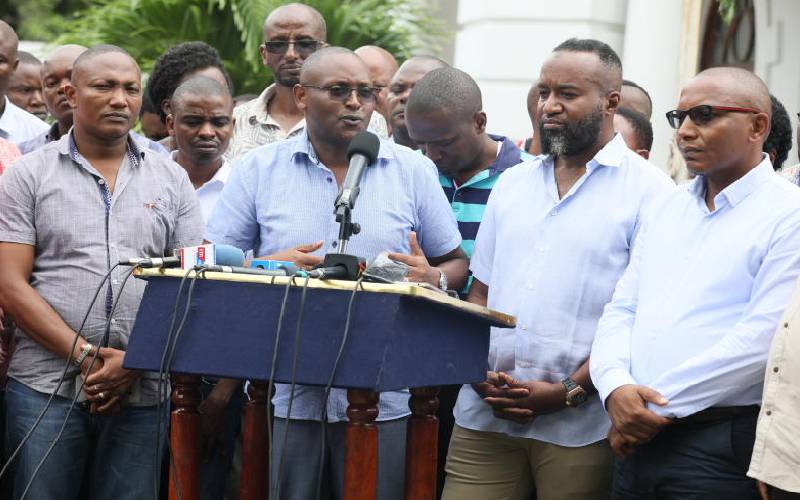×
The Standard e-Paper
Stay Informed, Even Offline

Again, we hear the cacophony of coastal unity lyrics with the sounds of BBI in the background, and the music is not in synch. Coastal unity is a mirage and the sooner coastal politicians come to terms with it, the better for all of us.